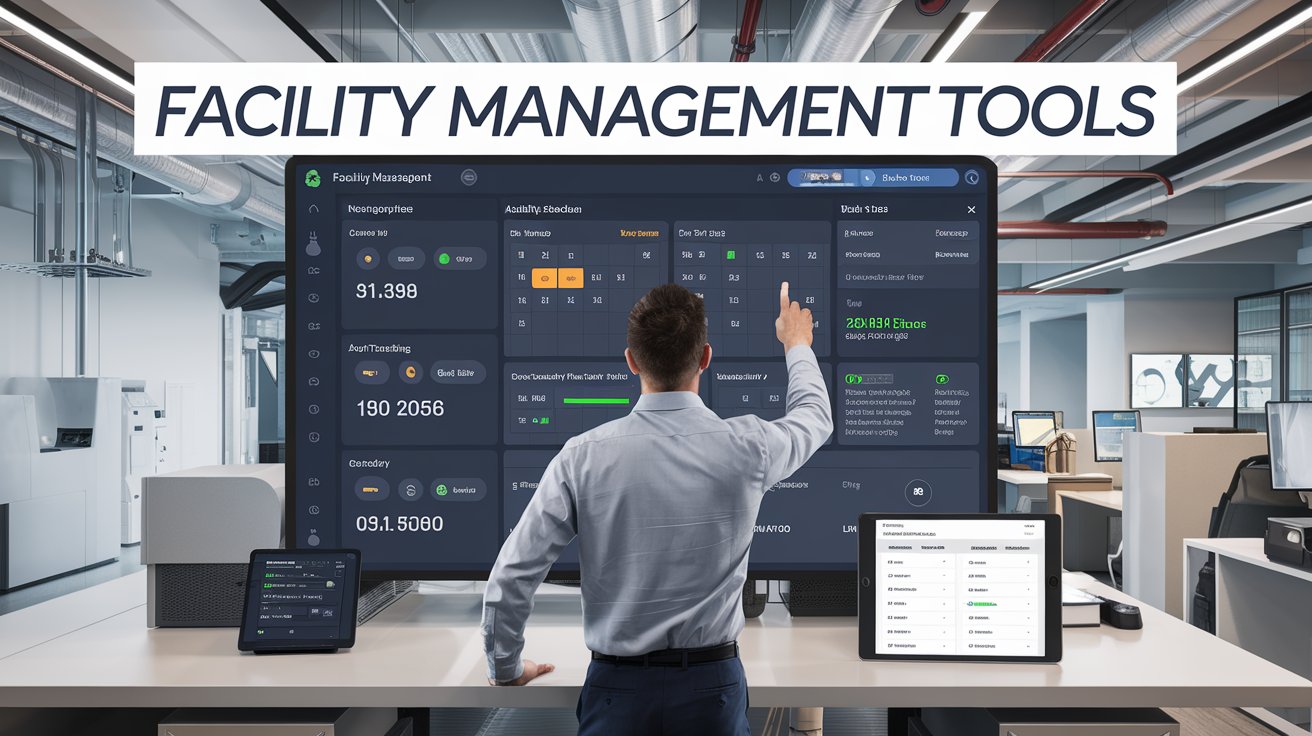
In today's fast-paced world, maintaining a facility—whether an office building, industrial plant, or commercial space—has gotten more difficult. Facility management involves collaboration, time, and precision to ensure that safety standards are met, as well as to maintain equipment and handle everyday duties. This is when facility management tools come in handy. But what precisely are these instruments, and why are they necessary for running a seamless, cost-effective operation?

What Are Facility Management Tools?
Facility management tools are a collection of software, apps, and systems meant to help facility managers streamline their daily operations. These tools facilitate the management of physical areas, maintenance schedules, and facility resources. Facility management systems benefit both small and large firms by improving operational efficiency, reducing downtime, and keeping facilities running smoothly.
But what makes these tools indispensable for facility managers? Let’s break it down.
The Key Benefits of Facility Management Tools
- Centralized Information: Facility management tools provide a centralized platform where all information about building systems, maintenance schedules, and asset management can be accessed. Instead of manually tracking data across multiple spreadsheets or systems, everything is in one place, easily accessible at any time.
- Preventive Maintenance: One of the most powerful features of facility management tools is the ability to schedule preventive maintenance. Regular maintenance ensures equipment is checked, serviced, and maintained before it breaks down, which helps to reduce costly repairs and prevent downtime.
- Real-Time Monitoring: Many facility management tools come with real-time monitoring capabilities. These allow managers to track equipment performance, energy usage, and system status in real time, ensuring that any issues are identified and resolved before they impact operations.
- Improved Communication and Collaboration: These tools often include communication features that allow team members to collaborate effectively. Maintenance issues can be reported instantly, and work orders can be assigned and tracked to completion, improving team efficiency and reducing miscommunication.
- Data-Driven Decision Making: Facility management tools generate data reports that provide valuable insights into facility performance. These insights can help managers make informed decisions on optimizing energy usage, managing costs, and improving overall facility operations.
Types of Facility Management Tools
There are various types of facility management tools available, each designed to address different aspects of facility management:
- Computerized Maintenance Management Systems (CMMS): CMMS software is essential for automating maintenance tasks, tracking assets, and managing work orders. It helps facilities ensure timely maintenance and improve operational longevity. A CMMS system can also track equipment history, schedule inspections, and manage inventory.
- Building Management Systems (BMS): Building management systems monitor and control a facility's mechanical and electrical systems, such as HVAC, lighting, and fire alarms. These systems help optimize energy use, monitor environmental conditions, and improve sustainability efforts.
- Integrated Workplace Management Systems (IWMS): An IWMS combines multiple tools into one, offering comprehensive management across multiple areas such as space management, asset management, energy management, and maintenance. It’s an ideal solution for large organizations with complex facility management needs.
- Energy Management Tools: These tools focus on monitoring and optimizing energy use within the facility. By analyzing energy consumption patterns, facility managers can make adjustments to improve energy efficiency, reduce costs, and contribute to sustainability goals.
- Mobile Apps for Facility Management: With the rise of mobile technology, many facility management tools now have mobile apps, allowing managers and staff to access data, manage tasks, and complete work orders from anywhere. This improves flexibility, communication, and response time to issues.
Start transforming—Request your demo today! https://axonator.com/request-for-demo/
Choosing the Right Facility Management Tool
With so many options available, selecting the right tool for your needs can be overwhelming. Here are a few factors to consider:
- Scalability: Does the tool grow with your facility's needs?
- Integration: How well does the tool integrate with your existing systems or software?
- Ease of Use: Is the tool user-friendly for both experienced managers and new team members?
- Mobile Accessibility: Can your team manage tasks and track performance on the go?
- Cost: Does the tool fit within your budget while offering the features you need?
The Future of Facility Management Tools
The future of facility management tools is changing, with technology driving several developments. AI, machine learning, and the Internet of Things (IoT) are reshaping the sector. Smart facilities are evolving, with networked systems and devices collaborating to monitor, control, and optimize building performance in real time.
Consider stepping into a facility where the temperature, lighting, and security systems are all automatically modified based on your preferences and occupancy levels. Facility management tools will make these automated, intelligent settings a reality, increasing efficiency and sustainability.
Embrace the Future of Facility Management
In today's digital world, facility management technologies are no longer a luxury, but rather a requirement. Whether you manage a tiny office building or a vast industrial complex, these tools can help you keep things running smoothly, safely, and cost-effectively. Facility management technologies enable managers to focus on what is most important: creating a productive and safe environment for all.
